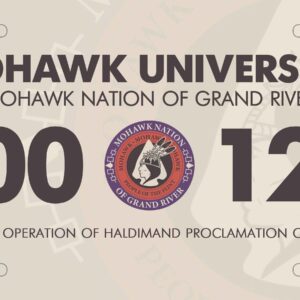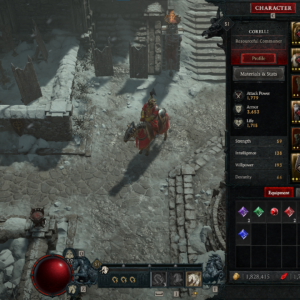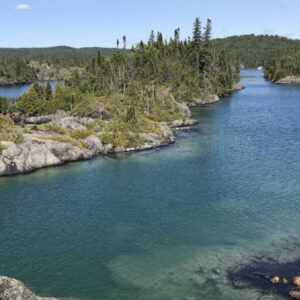
BRANTFORD – A Brantford and area citizens group known as Friends and Neighbours of Woodland Cultural Centre and Save the Evidence have been educating non-indigenous people about the Residential Schools area and how that reflects on the people of Six Nations and of Brantford.
The organization, now with 40 members, and the direction of the group was launched after Justice Murray Sinclair issued 94 calls to action that all people—Indigenous and non-indigenous—can work together to heal the wounds created through Canada’s relationship with First Nations people.
A group of Brantford residents formed the advocacy organization for the purpose of educating non-indigenous neighbours of Six Nations and New Credit to the systematic horrors and abuse to indigenous “students” these children had to quietly endure.
But there are many sub-plots in this dark spot in Canadian history, and Lou and Robert Knechtal and their organization have been bringing in important guest speakers who are versed in indigenous issues to explain, especially for non-indigenous people, what is behind the treaties, why indigenous people consider themselves independent nations within the state known as Canada, and in this case, the back ground of the whole residential schools system itself.
Acclaimed Algonquin, Anisinaabe-kwe artist, lecturer, educator, researcher and author Dr. Lynn Gehl will be the next guest in the Community Lecture Series on Wednesday, March 28th at 7 pm at the Laurier Campus in Brantford, at 150 Dalhousie Street, Research and Academic Centre, 004, East Wing, in Brantford.
Gehl will be addressing points in her latest book, Claiming Anishinaabe: Decolonizing the Human Spirit but will also touch on other pertinent points regarding the reconciliation between Canada and indigenous nations.
“I like to speak on what I call Heart Knowledge,” Gehl told TRT. “Most people will look to the head for knowledge, but the heart is also a fine repository for knowledge. The heart has intelligence worth listening to.”
The book has made it to the Hill Times List of 100 Best Books of 2017.
“It was a hard journey because it is a paradigm shift, she said about her journey of personal discovery. “You would have to really think differently and conceptually. It’s not just the fluffs and feathers and dancing. There is a real sophisticated knowledge system under that.”
“The Mohawk Institute was in Brantford between 1830 and 1979,” says Knechtal. “Most people who knew about the Mohawk Institute thought everything was going fine and didn’t get involved with things.
When Woodland Cultural Centre was formed as a museum to look at the arts, music, and culture at the site, that gave a future to the old school building which could have faded into history. The cost to restore the old school became an issue, but one most people accepted as needful to protect the history for future generations to learn from.
After a number of fundraising events and generous donations the restoration of the “Mush Hole” as its Indian students used to call it because of the poor food they were forced to eat, the work began.
One of the most immediate needs was a new roof. Years of patches and Band-Aid remedies were overwhelmed by the passage of time and it became a matter of fix it or tear it down.
The survivors voted that they did not want to remove the building, but rather, they wanted to keep it as a reminder that this should never happen again.
Amos Key headed up the “Save the Evidence” campaign to raise both funds and awareness of the planned Residential School Museum.
“After a meeting with Amos, a bunch of us, including former Brantford Mayor and MP, David Neuman and his wife, Alfreda, decided to get proactive and do something to save the evidence,” recalls Lou and her husband Robert Knechtal.
As non-indigenous residents of Brantford who have worked with Six Nations environmentalists in the past, they knew enough to be respectful and understanding of what their intentions were.
Lou Knechtal attributes the idea for the “Friends and Neighbours” to a similar lecture series put on in Brantford by a citizens group known as TRUE, or Two Row Understanding Through Education, which offered educational lecture series with Indigenous Rights lawyers and other experts, both native and non-native for a couple of years.
When Justice Sinclair, who headed up the Truth and Reconciliation Commission, was in Brantford, members of the fledgling group went to hear the recommendations made to Canada and Canadians on how to bring about healing between the two cultures.
After listening to these recommendations, the Neuman’s, the Knechtal’s got together to discuss how they could help as non-indigenous people.
Using TRUE as a template, the Friends and Neighbours of Woodland Cultural Centre and Save the Evidence began their series at Laurier.
“Each time we have had a session, there have been new people come out, which is good,” she says. “We encourage those who attend to do something with what they have learned and have the knowledge ready if there is any kind of uneducated lunch room discussions or wherever.”
At times the group may run free movies, which are educational and pertinent to their mandate from other researchers and filmmakers.
“We are grass roots and we don’t have money so many of our guest speakers have donated their time,” says Knechtal.
Wilfrid Laurier University has partnered with the group and is providing the lecture room and the refreshments as part of their community effort to educate both residents and students.
A facebook sight has been created to promote their speaker series and also to educate its on-line visitors.
“There are so many people right here in Brantford, that have never heard of the Mohawk Institute,” says Robert Knechtal. “We hope to help make people aware of it and what happened there.”
CUTLINE:






